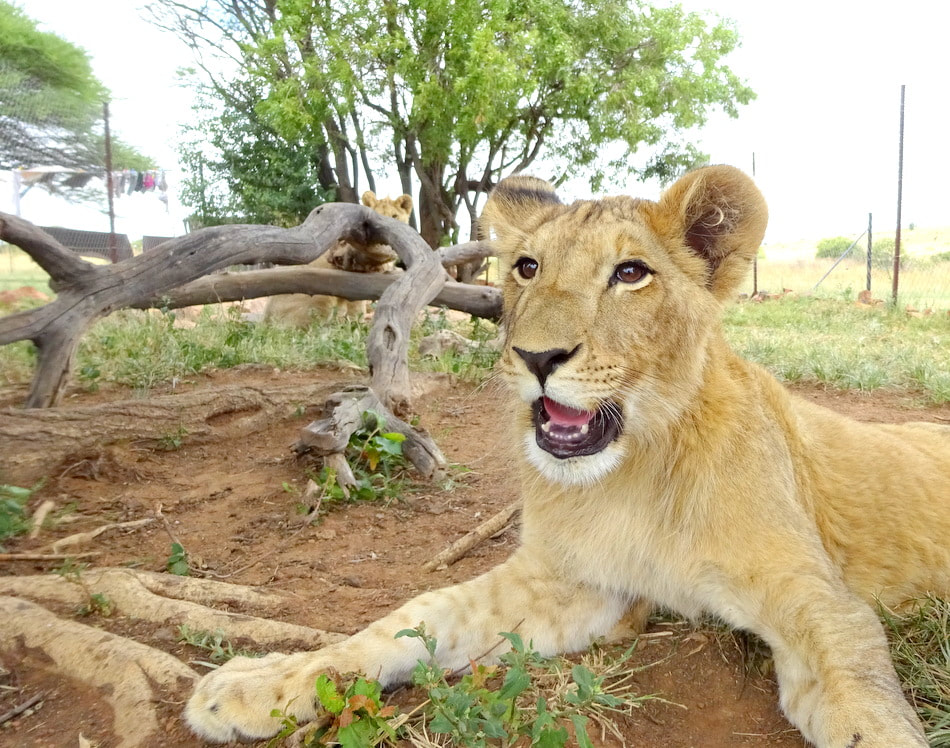
This blog criticises a letter sent to the Chinese government by well-known hunting apologist Eugene Lapointe.
After wrapping himself in a cloak of assumed credibility arising from previous association with international organisations such as CITES, he writes to the Chinese government asking it to resist calls for it to ban the trade in ivory. The self- important homily then proceeds to expound upon the alleged efficacy of the doctrine of 'wise use'.
Nonetheless, he finds support for his view that elephants are merely a resource to be exploited from some African media:
http://www.herald.co.zw/china-must-not-ban-ivory-trade/
All his tired old arguments are half-truths that can be reduced to the following syllogism:
- all cats have four legs
- my dog has four legs
- therefore my dog is a cat.
Quoting himself: “As I stated in 2007, the beneficiaries of a complete ban on all legal ivory trade are the poachers, criminal gangs and corrupt officials who drive the illegal trade — and who the campaigners suppose they are opposing,” said Mr Lapointe. “Of course, the animal rights groups themselves raise billions of dollars through their campaigns in the United States and Europe, so a ban also satisfies their financial needs”.
Lapointe’s argument is: there was a ban; there was also a surge in poaching; ergo, the ban must have caused it. This is a perfect example of the ‘my dog is a cat’ syllogism. How simplistic. How childish. If only it were that simple. No doubt he would argue that the only way to save whales is by whaling, and that any ban would merely ‘satisfy the financial needs’ of Sea Shepherd.
Actually there were many causes for the upsurge in poaching, including the rise of affluence in China and the rest of Asia, as well as the CITES –approved ivory stockpile releases in 1997, 2000 and 2008.
The truth is that saving Africa’s wildlife is a hideously complex and deep issue involving environmental, political, socio-economic, cultural and geopolitical considerations.
The root of the problem lies in the reckless and irresponsible human population explosion in Africa. Unless the human population can be brought under control there is no hope for the wildlife.
The uncontrolled breeding of the human population is presently overwhelming all social services such as health and education, the economy and ultimately the ecology. Poverty and unemployment are the inevitable consequence, and so is the migrant crisis in Europe.
Animal rights campaigners are not responsible for poverty and unemployment in Africa.
Here is another truth. African governments and administrations are notoriously corrupt. Some years ago, I was travelling through a ‘protected’ wilderness area near the Zambesi river. Such marvellous wilderness - and yet there was no wildlife to be seen. We could not understand why. Then we came across the game ranger’s camp and right there, strung up on wires all around the camp, was the reason for the absence of wildlife: hundreds of pieces of meat drying in the sun to be turned into biltong and sold. Give a man like that a government vehicle, a government rifle and salary and all you are doing is equipping him to run his own private game butchery business.
The dwindling wildlife areas in Africa are precious resources which ought to be ferociously protected by governments. Alas, trees and animals do not vote and therefore get no money from patronage-dependent political structures. And into this vacuum where governance and protection should exist comes the hunting industry, trumpeting (sorry!) its conservation credentials.
Game farmers point at the infrastructure they have built and the control that they exercise over their fenced- off ranches and claim righteously that they are the only defence standing between the wildlife and the rapacious poachers who would kill all the animals, whereas the hunters will only kill some of the animals. What on earth does this have to do with conservation? Domesticating wild animals and then rearing them like sheep to be slaughtered by hunters is not conservation, it is farming with alternative livestock. Farming for commercial purposes should never be confused with conservation, which is the preservation of natural functioning ecosystems for their own sakes.
Yet this totally irrelevant argument for hunting is seized upon by many role players in the conservation spectrum. Like large organisations such as WWF. And politicians and bureaucrats in the United States, who are terrified of offending the hunting/NRA block vote of 4 million votes that can easily swing an election.
Hunting is an ugly, dirty, bloody business, but the proponents make it sound almost acceptable with the use of euphemisms such as: ‘well-regulated hunting can serve as a tool of conservation’. This is Africa, for goodness sake. Name anything which is ‘well-regulated’.
And now, following the flawed hunting narrative, comes the lamestream media, desperate to infuse cultural Marxism into the conservation space. Well-known publications like Newsweek publish articles by journalists like Nina Burleigh, who attacks and seeks to discredit hard-working anti-poaching organisations like Damien Mander’s IAPF. In her philosophy, Damien is white and therefore evil, whereas the poachers that he is tackling are black and therefore innocent victims. Again, how simplistic. How childish. If only it were that simple.
Not to be outdone by the other threats to the survival of wildlife, here come the ivory tower academics in the UK, infusing their brand of liberal fascism into the debate. Any academic who has spent a little time in Africa doing research on this, that or the other species is suddenly an expert on conservation and Africa. In their philosophy, the use of para-military force against poachers is morally unacceptable and repressive. Rural African communities should be proactively courted and persuaded to participate in saving wildlife. Liberal philosophy demands that it should be all carrot, and no stick.
How naive. No doubt they would be much happier if Damien Mander’s game rangers were carrying flowers instead of weapons and handing them out to poachers, along with an audio-visual presentation of how important it is to preserve wildlife. Africa does not work that way and their naive liberal views merely show how little they understand Africa.
Why are so many African governments ruled or controlled by dictators? The answer is that Africans understand the concept of chieftainship. In tribal culture, the Chief is king and everything belongs to him - including your wife if he wants her. Zimbabwe President Robert Mugabe repressed political dissent in Matabeleland by throwing whole villages down abandoned mineshafts. That makes him a genocidal monster - but it also helps to explain how he stayed in power for 37 years. There is a lesson there, reinforced by the fact that the African Union elected him Chairman – knowing full well his murderous history. Liberal attitudes do not fare well in Africa.
None of the existing role players in conservation understand what is required to save Africa’s vanishing wilderness. The issue is just too broad and deep - and politically charged. Until there is a human population crash, which is the only thing at the end of the day that will save the wilderness, I would suggest the following stopgap measures:
- all aid from the developed world to African countries should be rigidly tied to environmental compliance.
- the hunting fraternity should transition to turning their guns on to poachers, and to protecting the animals. The hunting fraternity is a well- armed, wealthy militia, and can serve a useful purpose if properly directed.
- no expense should be spared to protect remaining wilderness areas. The money is there. If an old da Vinci painting can fetch half a billion dollars on auction, and trillions can be created out of thin air to be thrown at zombie banks to rescue them from their own greed, do not tell me that there is no money to save the environment and the wilderness.
After that it is up to Nature. Perhaps the microbes will mutate in time to save this wonderful planet from the cruel, polluting excesses of industrial man. In the meantime let us at least have an honest debate about conservation issues without sustainable use propagandists like Eugene Lapointe hurling blame and pejorative epithets at the animal welfare community, simply because we can see that the theory always collapses in Africa to become sustained abuse.
